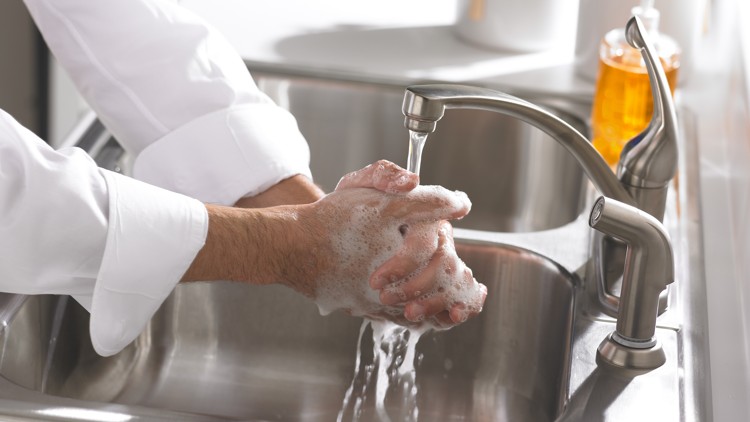-
Tips for becoming a good boxer - November 6, 2020
-
7 expert tips for making your hens night a memorable one - November 6, 2020
-
5 reasons to host your Christmas party on a cruise boat - November 6, 2020
-
What to do when you’re charged with a crime - November 6, 2020
-
Should you get one or multiple dogs? Here’s all you need to know - November 3, 2020
-
A Guide: How to Build Your Very Own Magic Mirror - February 14, 2019
-
Our Top Inspirational Baseball Stars - November 24, 2018
-
Five Tech Tools That Will Help You Turn Your Blog into a Business - November 24, 2018
-
How to Indulge on Vacation without Expanding Your Waist - November 9, 2018
-
5 Strategies for Businesses to Appeal to Today’s Increasingly Mobile-Crazed Customers - November 9, 2018
FDA bans antiseptic chemicals in soaps; no proof they work
“Following simple handwashing practices is one of the most effective ways to prevent the spread of many types of infection and illness at home, at school and elsewhere”, Theresa M. Michele of the FDA’s Division of Nonprescription Drug Products said in a statement. Doldan said, ‘It’s no more effective then regular soap and water, so why keep it on the market?
Advertisement
The U.S. Food and Drug Administration issued new rules on Friday banning the marketing of soaps with certain common antibacterial ingredients. Overall, the agency said the 19 substances used in soaps for their antibacterial properties, the most popular of which are triclosan and triclocarban, are not more effective than normal soap.
Companies will no longer be able to market antibacterial washes with these ingredients because manufacturers did not demonstrate that the ingredients are both safe for long-term daily use and more effective than plain soap and water in preventing illness and the spread of certain infections, the FDA said in a statement on Friday issuing final rule on safety and effectiveness of antibacterial soaps.
“In fact, some data suggests that antibacterial ingredients may do more harm than good over the long-term”, Woodcock noted. Manufacturers either failed to meet federal standards for proving safety and effectiveness or did not report any data, the FDA said. According to the group’s spokesman, manufacturers are planning to submit data on three chemicals now used by the industry: benzethonium chloride, chloroxylenol and benzalkonium chloride.
The agency told manufacturers almost three years ago that they must show their products are safe and effective.
However, “antibacterial hand and body wash manufacturers did not provide the necessary data to establish safety and effectiveness”, according to the FDA’s new final rule.
The FDA said it will allow companies more time to provide data on three additional chemicals, which are used in most antibacterial soaps sold today.
You may soon say “goodbye” to “antibacterial” soaps. “If you use these products because you think they protect you more than soap and water, that’s not correct”.
The chemicals used to make soaps antibacterial might also affect human hormones.
Manufacturers have a year to remove the ingredients from their products, but the FDA’s ruling doesn’t affect hand sanitizers or “antibacterial products used in health care settings”.
For the paper, researchers reviewed 27 studies on the potential hazards versus benefits of antibacterial soaps.
“This whole issue of antibiotics, where they do good and they don’t do good, has not been explained well enough to the public, but I think it can be now”, said Levy, who conducted some of the earliest studies on antibiotic resistance.
Advertisement
Companies have been given year to take the ingredients out of the products by the FDA.





























